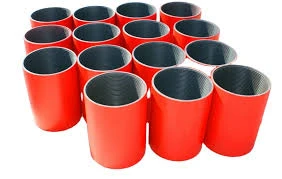- Afrikaans
- Albanian
- Amharic
- Arabic
- Armenian
- Azerbaijani
- Basque
- Belarusian
- Bengali
- Bosnian
- Bulgarian
- Catalan
- Cebuano
- Corsican
- Croatian
- Czech
- Danish
- Dutch
- English
- Esperanto
- Estonian
- Finnish
- French
- Frisian
- Galician
- Georgian
- German
- Greek
- Gujarati
- Haitian Creole
- hausa
- hawaiian
- Hebrew
- Hindi
- Miao
- Hungarian
- Icelandic
- igbo
- Indonesian
- irish
- Italian
- Japanese
- Javanese
- Kannada
- kazakh
- Khmer
- Rwandese
- Korean
- Kurdish
- Kyrgyz
- Lao
- Latin
- Latvian
- Lithuanian
- Luxembourgish
- Macedonian
- Malgashi
- Malay
- Malayalam
- Maltese
- Maori
- Marathi
- Mongolian
- Myanmar
- Nepali
- Norwegian
- Norwegian
- Occitan
- Pashto
- Persian
- Polish
- Portuguese
- Punjabi
- Romanian
- Russian
- Samoan
- Scottish Gaelic
- Serbian
- Sesotho
- Shona
- Sindhi
- Sinhala
- Slovak
- Slovenian
- Somali
- Spanish
- Sundanese
- Swahili
- Swedish
- Tagalog
- Tajik
- Tamil
- Tatar
- Telugu
- Thai
- Turkish
- Turkmen
- Ukrainian
- Urdu
- Uighur
- Uzbek
- Vietnamese
- Welsh
- Bantu
- Yiddish
- Yoruba
- Zulu
Teflon Coupling Techniques for Enhanced Performance in Mechanical Engineering Applications
Understanding Teflon Couplings A Comprehensive Overview
Teflon couplings have gained significant attention in various industrial applications due to their unique properties and advantages. They are typically used to connect two rotating shafts and facilitate the transfer of motion, making them crucial components in many mechanical systems. This article delves into the characteristics, benefits, applications, and considerations when using Teflon couplings.
What is Teflon?
Teflon is a brand name for a particular type of polytetrafluoroethylene (PTFE), a high-performance thermoplastic known for its exceptional chemical resistance, low friction, and high thermal stability. Teflon's non-stick qualities have made it popular in cookware, but its industrial applications are just as important. The material can withstand extreme temperatures and is highly resistant to corrosion, making it an ideal choice for various mechanical components, including couplings.
What are Teflon Couplings?
Teflon couplings are connectors that incorporate Teflon in their design to achieve specific performance characteristics. They can be used in applications where traditional metal couplings would fail or where extra protection against chemical exposure and wear is necessary. These couplings can be found in various forms, including rigid, flexible, and universal types, each tailored for different operational needs.
Benefits of Teflon Couplings
1. Chemical Resistance Teflon's high resistance to chemicals means that Teflon couplings can be utilized in harsh environments where corrosive substances are present. This capability significantly extends the lifespan of the coupling and reduces maintenance costs.
2. Low Friction The low friction properties of Teflon reduce wear and tear on both the coupling and the shafts it connects. This quality not only improves the efficiency of the system but also allows for smoother operation, which is vital in precision machinery.
3. Temperature Stability Teflon can operate efficiently across a wide range of temperatures, making it suitable for applications where thermal fluctuations are common. This quality ensures that Teflon couplings maintain their integrity and functionality even under extreme heat or cold.
4. Electrical Insulation Teflon is an excellent electrical insulator, making Teflon couplings ideal for applications where electrical conductivity might pose a risk. This feature enhances safety and reliability in electrically sensitive environments.
teflon coupling

5. Customization Teflon couplings can be manufactured in various shapes and sizes, allowing for customization to meet specific operational requirements. This versatility is crucial for industries that may need unique solutions.
Applications of Teflon Couplings
Teflon couplings are used in several industries, including
- Chemical Processing In environments where aggressive chemicals are used, Teflon couplings provide the necessary durability and resistance to ensure long-term operation. - Pharmaceuticals The medical and pharmaceutical industries require high standards of hygiene and safety. Teflon couplings can withstand sterilization processes and are less likely to leach harmful substances.
- Food Industry Food processing equipment often relies on Teflon couplings due to their non-stick properties and chemical resistance, ensuring that contaminants do not compromise product safety.
- Aerospace and Automotive The aerospace and automotive sectors demand components that can withstand harsh conditions, making Teflon couplings suitable for applications in engines and other critical systems.
Considerations When Using Teflon Couplings
While Teflon couplings offer many advantages, there are some considerations to keep in mind. They can be more expensive than traditional metal couplings due to the cost of the material and manufacturing processes. Additionally, while Teflon is highly resistant to wear from chemicals, it can be less durable in high-stress mechanical situations or environments with significant mechanical abrasion.
Conclusion
Teflon couplings represent a fusion of functionality and durability, making them invaluable in various industries. Their unique characteristics, such as chemical resistance, low friction, and thermal stability, position them as ideal solutions for connecting shafts in challenging environments. As industries continue to evolve and demand higher performance from their components, Teflon couplings will likely play an even more significant role in facilitating efficient and safe operations. Understanding their benefits and applications is crucial for engineers and technicians looking to optimize their mechanical systems.
-
Tubing Pup Joints: Essential Components for Oil and Gas OperationsNewsJul.10,2025
-
Pup Joints: Essential Components for Reliable Drilling OperationsNewsJul.10,2025
-
Pipe Couplings: Connecting Your World EfficientlyNewsJul.10,2025
-
Mastering Oilfield Operations with Quality Tubing and CasingNewsJul.10,2025
-
High-Quality Casing Couplings for Every NeedNewsJul.10,2025
-
Boost Your Drilling Efficiency with Premium Crossover Tools & Seating NipplesNewsJul.10,2025







